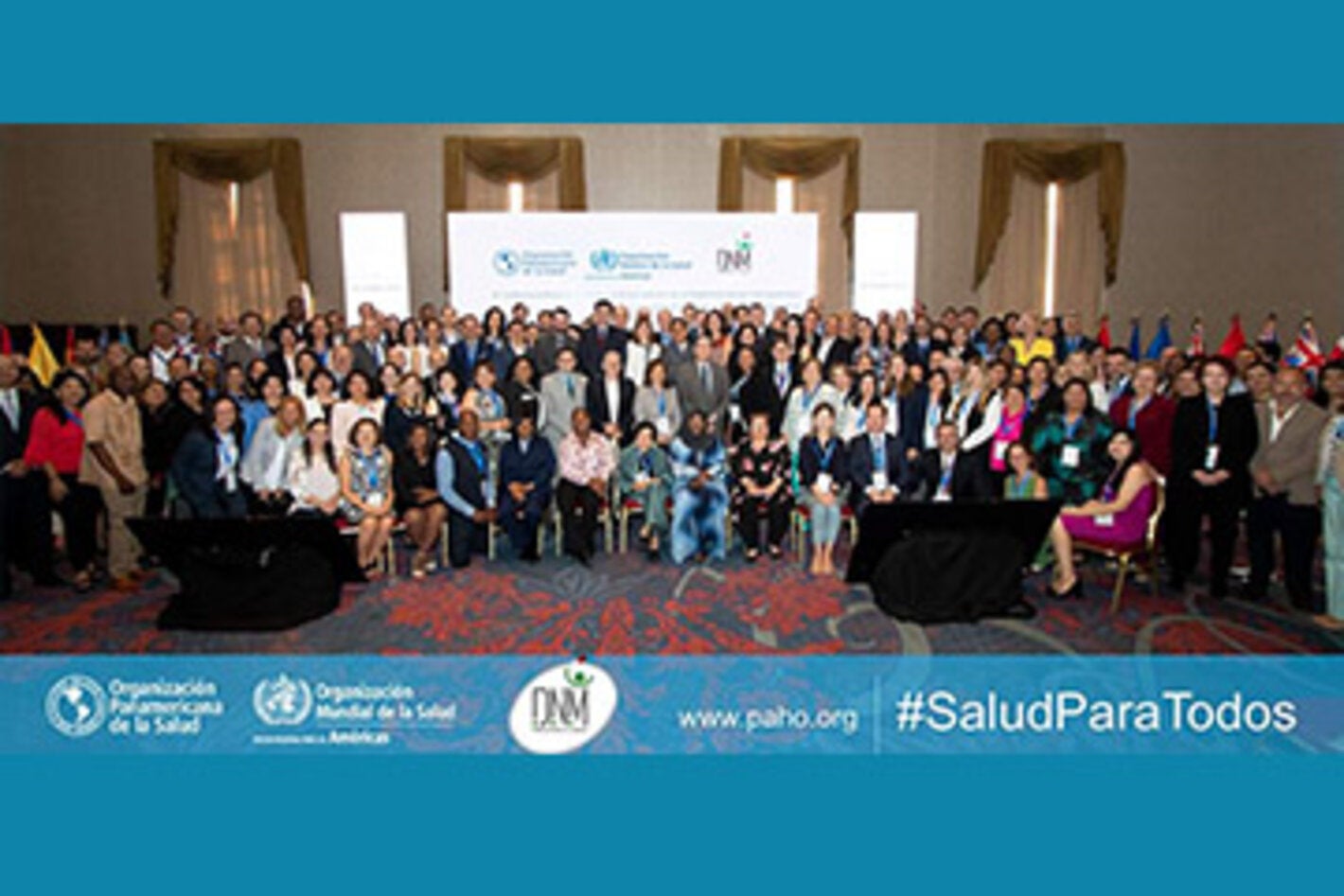
Washington D.C., 27 October 2018 (PAHO/WHO)- More than 160 national participants from regulatory authorities and health experts from the Americas met at the IX Conference of the Pan American Network for Drug Harmonization (CPANDRH) in San Salvador, El Salvador, from Oct. 24-26, 2018. The conference marked the first time the conference took place in a Central American country.
The theme of the three-day conference was "Commemorating 20 years of PANDRH and 40 years of Alma-Ata: The contributions of regulatory harmonization on achieving Health for All.”, History has demonstrated that countries can work together, under the leadership of the Pan American Health Organization, to address major health problems and ensure access to safe, effective and quality medicines in the Americas," said Leonor de Acosta, National Drug Administration of El Salvador. “
“The decision to hold the conference in El Salvador was a sincere recognition of the strengthening process that has taken place in recent years in the country's national regulatory system,” said Jarbas Barbosa, PAHO/WHO Assistant Director. “Alma-Ata noted that access to essential medicines is one of the necessary components to achieve the goal of Health for All,” Barbosa added. “The theme of this conference invites us to reflect on the role that regulatory systems have in the achievement of the goals assumed by world leaders in Alma-Ata, especially to promote access to safe, efficacious and quality medicines and other health technologies.”
For 20 years, PANDRH’s work and technical efforts have been guided by the role that medicines and other health technologies play in health promotion, disease prevention and treatment, and the need to strengthen health regulatory systems to fulfill that role. “PANDHR has supported capacity building, implementation of normative guidelines, and the exchange of experience between National Regulatory Authorities (NRAs) to build bridges and trust between the authorities,” said Analía Porrás, Unit Chief of Medicines and Health Technologies at PAHO.
Meting participants issued recommendations on principles of reliance in regulation; regulatory systems models for small states/markets with limited resources; and status of regulation on advanced therapy products. Participants stressed the need to encourage all Member States to use reliance to increase efficiencies, and to monitor and evaluate the impact of regulatory reliance across the Americas.
They also noted the importance of strengthening regulatory systems in small states with limited resources, and requested PAHO to develop tool kits to implement essential functions for regulation of medicines and other health technologies. During the closing debate, participants made recommendations for strengthening regulatory systems for medicines, health technologies and products of human origin; and for improving the information mechanisms of national regulatory authorities. “While the Region as a whole has advanced in terms of its capacity to regulate medicines and in the development of regulatory systems, we still face many challenges,” Porrás said. “We need to continue promoting good regulatory practices and the exchange of experiences and regulatory knowledge between NRAs in the Americas.”. The Conference of the Pan American Network on Drug Regulatory Harmonization (CPANDRH) is held every two or three years. The conference’s purpose is to promote drug regulatory harmonization for all aspects of quality, safety, and efficacy of pharmaceutical products to contribute to the quality of life and health care for everyone, everywhere.



